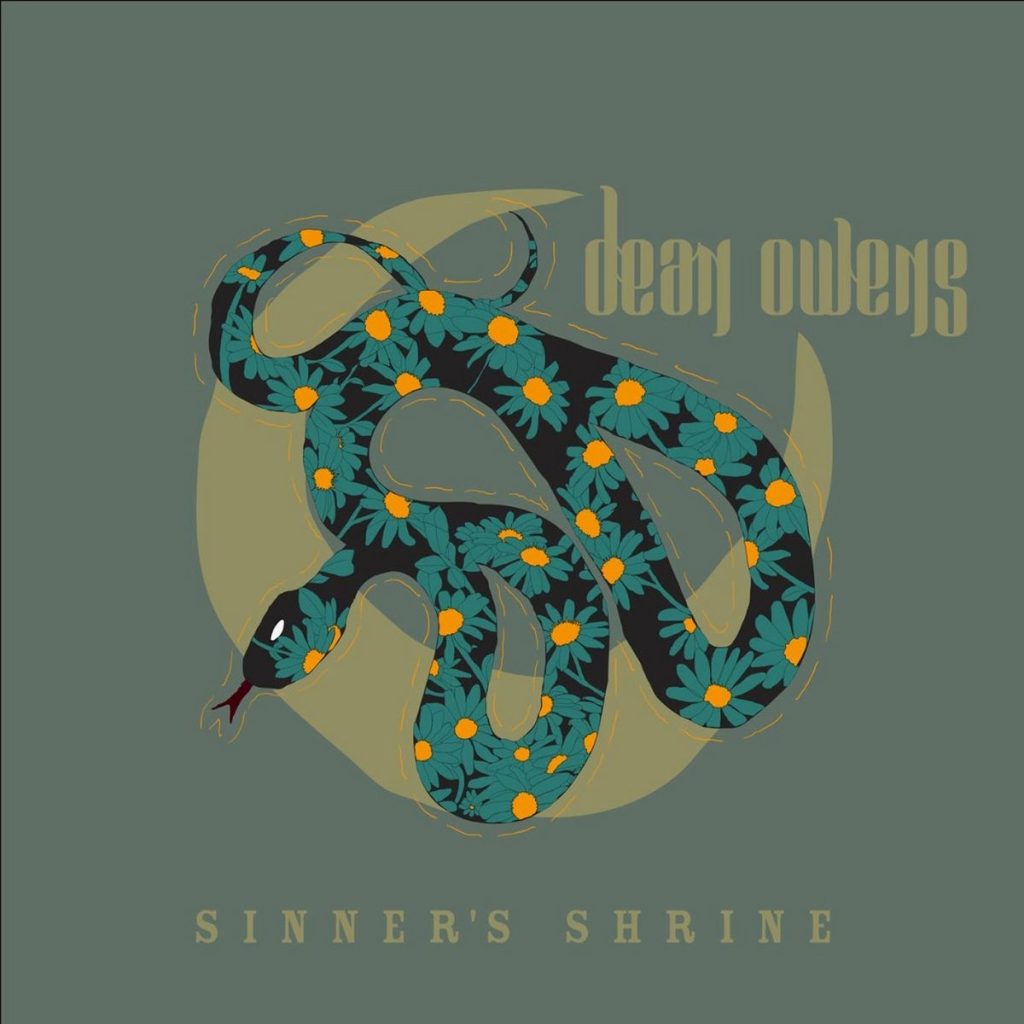ALBUM REVIEW: Dean Owens and Calexico Dive Into Southwestern Sounds on ‘Sinner’s Shrine’

Three years ago while on a tour break in Tucson, Arizona, Scottish singer-songwriter Dean Owens met Calexico’s Joey Burns completely by chance. They hit it off and kept in touch. Burns suggested Owens should record with him and some of his Calexico compadres at their studio. In January 2020, he did, and the result is Sinner’s Shrine, a sonic panorama of the American Southwest. Owens tells stories about sinners and saints, people on the move, all amid Calexico’s signature rhythms, guitars, keys, and horns. Together they instill a sense of movement and uncertainty that characterizes those borderlands.
Describing himself as “Celtic Americana,” Owens has spent a career painting vivid pictures of people in his native Scotland, drawing on his own family history. He is also no stranger to cross-Atlantic collaboration, having worked with Will Kimbrough and Neilson Hubbard, among others. What particularly impresses about Sinner’s Shrine is just how well Owens and what he calls the “Tucson core” of Calexico musicians blend. Most songs were recorded in just a couple of takes as Owens sounds as if he has been recording with Calexico for years.
“Arizona” opens with Burns’ guitars and John Convertino’s percussive breadth as Owens captures the significance of the Sinner’s Shrine dedicated to a transgressor built on unconsecrated land in Tucson’s Old Barrio. He steps further into that mysterious world, harmonizing with Grant-Lee Phillips, on “The Hopeless Ghosts.” A distant trumpet adds to the despair of lyrics like “home is the road I’m on.”
Tony Pró, an old friend of Burns, joins with his guitarron to give “Compañera” the full mariachi touch. “La Lomita” is about a small chapel and border refuge that was threatened with demolition to make way for Trump’s wall. Against a tumult of Mexican sounds, the distorted voice of Burns rasps, “You can’t build a wall,” while Sergio Mendoza lets rips with his full arsenal of piano, accordion, and percussion. “The Barbed Wire’s Still Weeping” continues that theme of border migration, with a lonely whistle from Owens leading into Calexico’s desert noir to paint a foreboding landscape where “through the night dark horses run.” Owens and the Calexico musicians add contemporary urgency to a long history of instability.
The result of many hours spent watching Westerns in Edinburgh cinemas, “Here Comes Paul Newman” finds Owens whistling an eerie throwback to old film soundtracks. Another guest, Gaby Moreno, duets with him on “Land of the Hummingbird,” her Spanish lines and a distant piano soaring above the arid desert.
Not all the songs are new. “New Mexico” comes from Owens’ debut album, but given the Calexico treatment, especially Jacob Valenzuela’s trumpet, it now radiates an intense heat to match the landscape. Another oldie, “After the Rain,” more associated with what regularly falls on Scotland, caught the attention of Burns, who said it had to be on this album.
From Scotland to Arizona, a serendipitous encounter between Owens and Burns shows that music knows no borders. Sinner’s Shrine unites a Celtic troubadour with the sounds of the American Southwest to immense effect.




